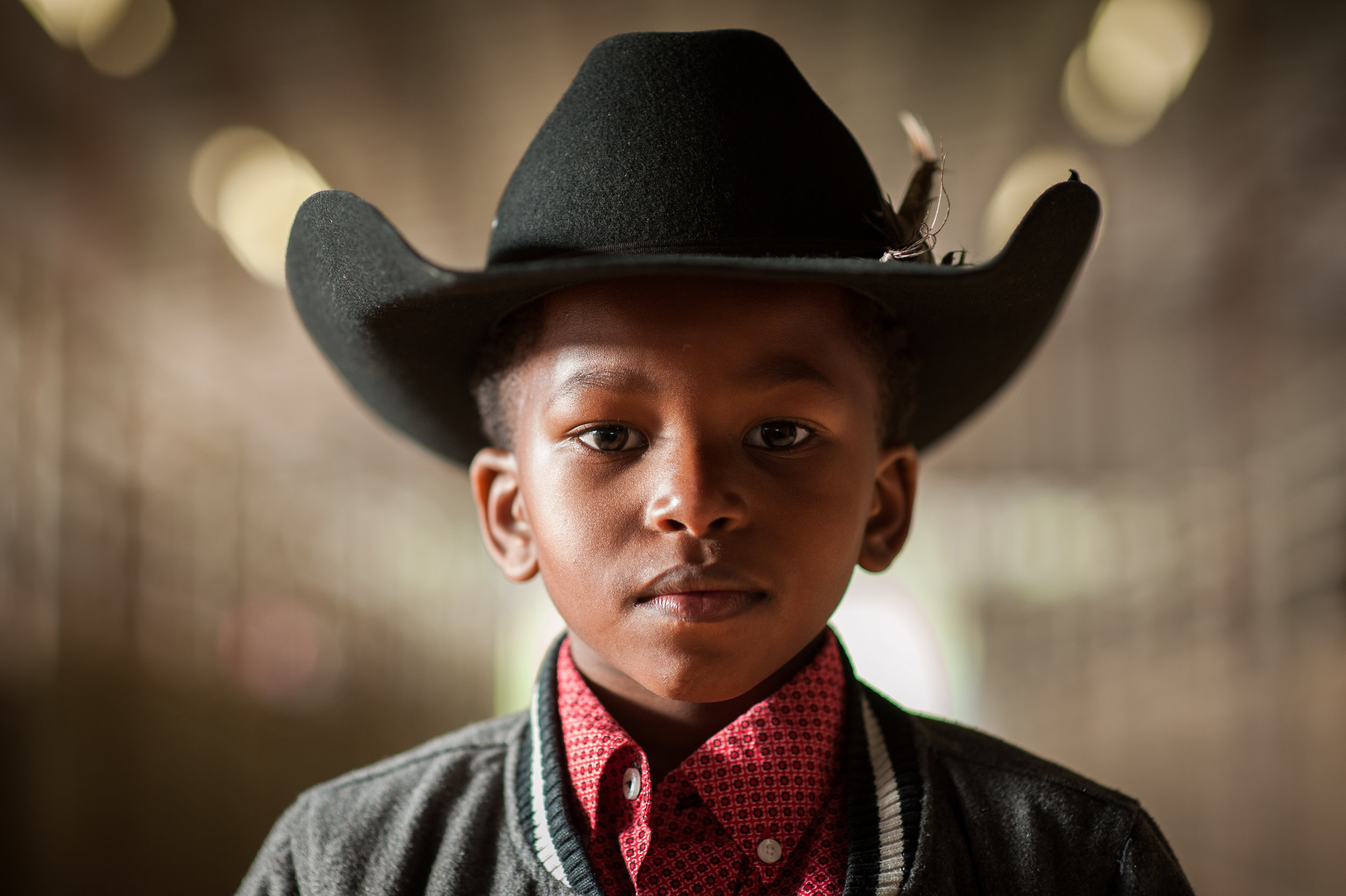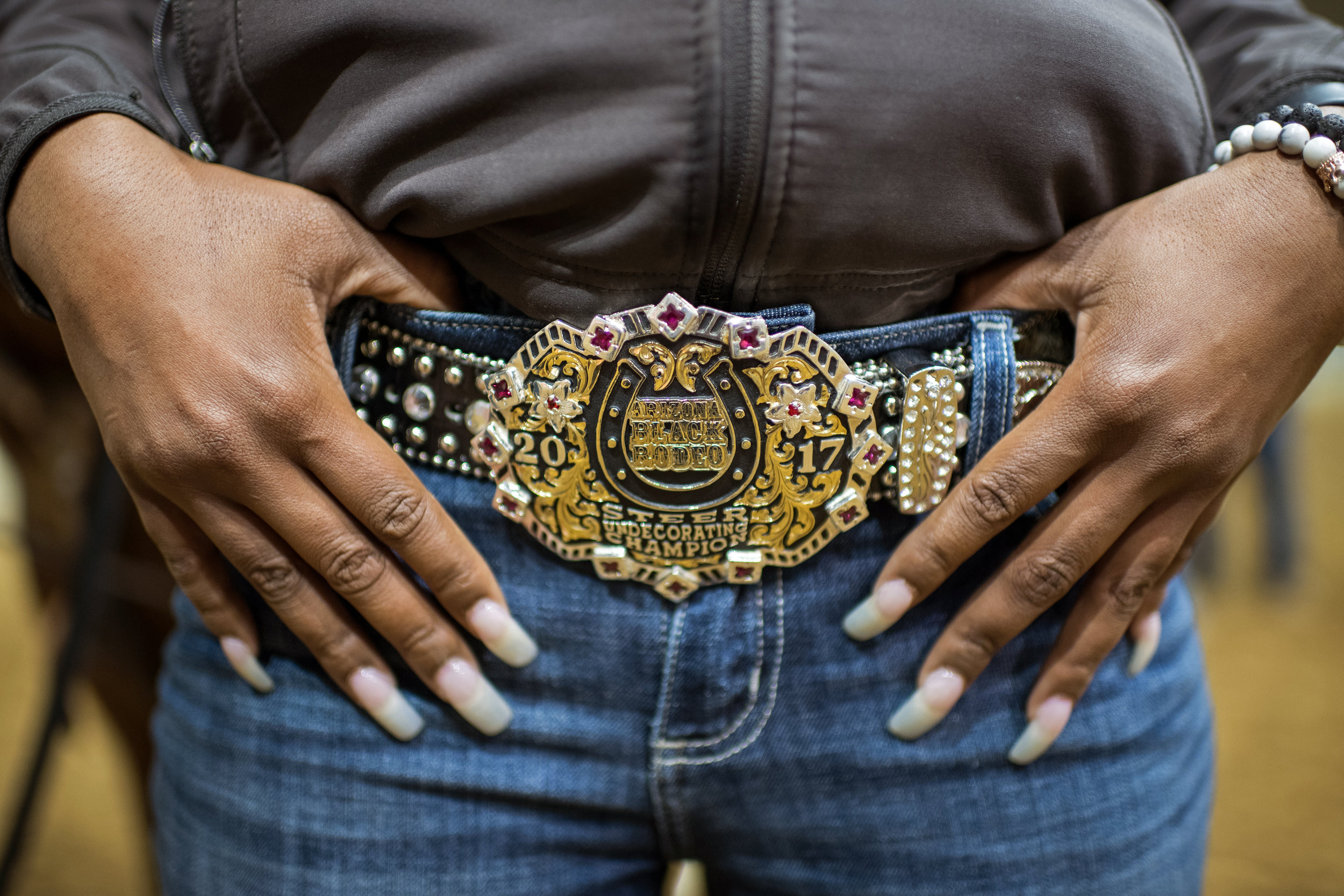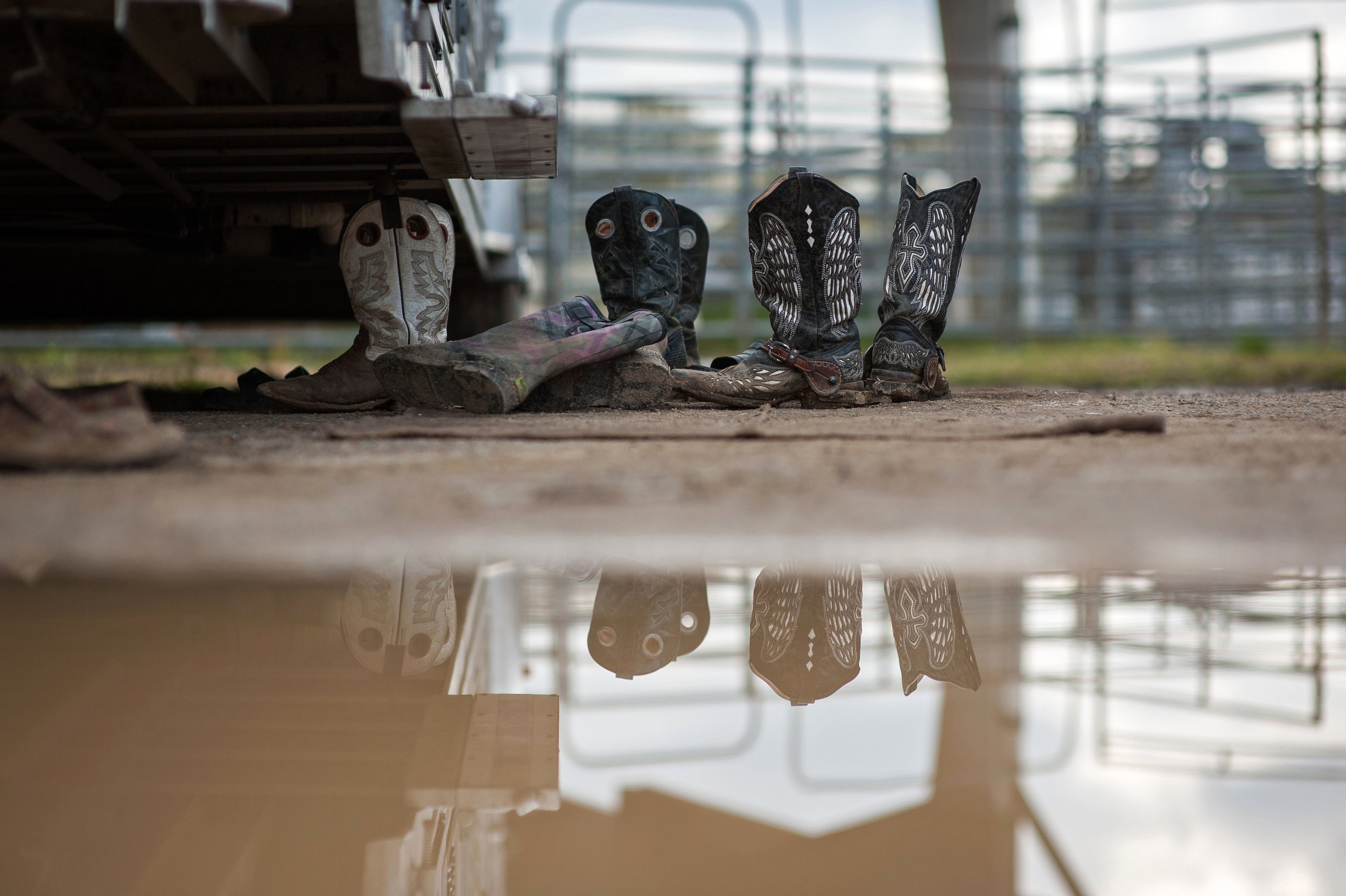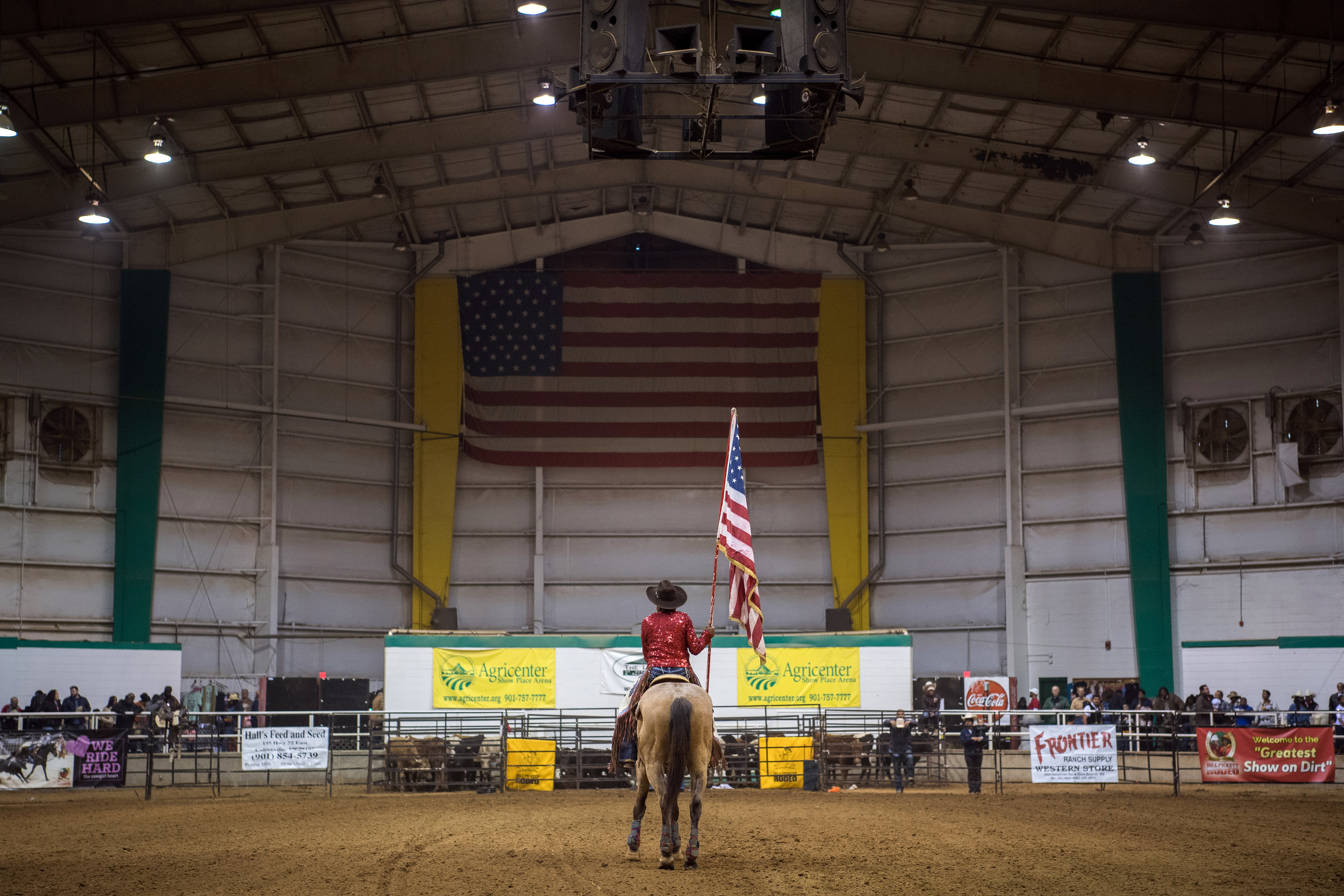Black Cowboys Are Real
On a stop in Memphis, the Bill Pickett Invitational Rodeo shows a slice of Americana few know or talk about when they think of the Wild Wild West — African-American cowboys and cowgirls.
Photography & Article by Rory Doyle
Outside the Show Place Arena at Memphis's Agricenter International, a horse trailer is customized with the words “Black Cowboys Are Real.” It’s a fitting statement here at the Bill Pickett Invitational Rodeo — the only traveling black rodeo — that celebrates the heritage of African-American cowboys and cowgirls, along with the contributions they made when settling the Wild West.
We’re all familiar with the standard-issue image of the American cowboy. From John Wayne in classics like “True Grit” to the striking and fashionable Marlboro men in the iconic cigarette ads.
But the history books, folklore, and “Hollywood” depictions of ranchers and wranglers have long overlooked many prominent riders — African-Americans.
A recent article in Smithsonian estimated that just after the Civil War, one in four cowboys were black. As America settled the Western frontier, thousands of black cowboys led the way. Historical accounts, however, are quick to dismiss their presence.
Bill Pickett was a revolutionary black cowboy — raised on a farm near Taylor, Texas, in the 1870s and credited with inventing bulldogging, or wrestling a steer to the ground as quickly as possible. In fifth grade, he left school to become a full-time rancher, and his legend quickly grew.
Along with his four brothers, Pickett established the Pickett Brothers Bronco Busters and Rough Riders Association. Known for his stunts and bulldogging routine, Pickett was sought after by rodeos across the nation. And in 1905, he joined the 101 Ranch Wild West Show, featuring notable cowboys and entertainers like Buffalo Bill and Will Rogers.
Pickett became a global cowboy figure who showed the world that non-Caucasians could succeed on the circuit. His impact has now touched generations of black riders. In 1971, he was inducted into the Rodeo Hall of Fame in Oklahoma City, becoming the first black rodeo athlete to receive the honor.
Carolyn Carter, general manager of the Bill Pickett Invitational Rodeo, has been with the company since its inception in 1984. Along with Memphis, the association makes stops in Los Angeles, Atlanta, Denver and more.
On the road, Carter spreads the word of the historical significance of black cowboys.
“It’s important we let America know we’re here, and this is what we do,” said Carter. “Our story is not told as much because we’re not writing the history books. But we don’t let that stop us. We do what we always do — continue forward.
“The settling of the West would not have happened without black cowboys,” she added. “If there were 10 cowboys, I guarantee you seven of them were black. And they got the roughest jobs because they were the bravest. And they got the jobs nobody else wanted. In the end, that made them better trainers, better horsemen, better at settling the West."
Tory Johnson, 33, is a third-generation rodeo cowboy who’s developed into one of America’s most successful black cowboys, winning titles in multiple rodeo associations. His background includes calf roping, steer wrestling (bulldogging), and bull riding. Johnson started competing on the Bill Pickett circuit in 2005 and now, when touring, visits local schools to educate youth about black cowboy heritage.
“A lot of kids in school today don't even know the history of black cowboys,” said Johnson. “They don't even know who Pickett is. I explain that we travel under his name, and he made history for us. Being part of this association allows me to give back to my culture. I want to show that there's more than just white cowboys. But at the end of the day, it's not about black cowboys and white cowboys. It's about being equal.”
On this night, a mostly black audience packed Agricenter ShowPlace Arena. Whether the younger generation knows the history or not, they’re rooting for some of the best rodeo athletes on the planet. And their roots go back generations. Bill Pickett would be proud.
Black cowboys and cowgirls are real — and they’re rodeo champions.






















